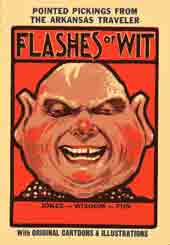 Am I the only one who hates The New Yorker caption contest?
Am I the only one who hates The New Yorker caption contest?
Every Tuesday, Wednesday, Thursday or Friday (with luck), the week’s issue of The New Yorker gets shoved into our mailbox. And when my kids come home, the first thing they’ll turn to when they see the mag is the back page.
There, for the uninitiated, is the Cartoon Caption Contest page. Which I loathe like little else.
I don’t know why it is. Maybe it’s the faux populism that the contest seems to exude. Here’s The New Yorker, letting all of its readers decide what the high-larious caption to the high-concept panel ought to be. It’s almost like being at the Algonquin Round Table — but more akin to yelling punchlines at George Kauffman from the next table.
In a more desperate way, the nightly TV newscast lets viewers send in pictures of cloud formations, and twitter/text their votes about whether taxes are bad or the home team is unbeatable. It’s the dialog that all established media now think will make them indispensable to people’s lives. The only problem is, most viewers can’t take a memorable picture, and most readers can’t write a caption.
Each week, a couple thousand captions are mailed in. Almost without fail, of the three finalists, one caption will be an execrable pun, one will be a play on words that takes three extra miles to get to its point (which wasn’t funny to start with), and one caption has close to the right tone — dry, multiple-layered, au courant but not cliché, and somewhat Gotham-y. By Gotham-y, I mean that it has to do with a stiff upper lip in the face of decay or danger or failure, or a smart-alecky retort that tries to wrangle the absurd to a mundane level. Anything that might refer to a shopping mall, fast food, an open space, a highway without gridlock, or Bass Pro Shops is never going to make it to the winner’s circle.
I’ve read that each of the cartoons used for the contest had already been submitted to the magazine by the cartoonist with a real caption. A caption they actually worked on and shaped with the writer’s innate skill of timing and economy. I’d really would like to know what that caption was. Whatever entries from readers are published might be close, or might be completely off-target, but I’ll never know exactly what the original caption was, and that makes me feel like I missed something. Maybe that makes me a snob, as if reading the magazine didn’t already accomplish that.
But as a professional writer and humorist, I’ve had too many instances of people in person and in print who work really really hard to prove that they are just as funny as me, even though I’ve never challenged them about it. Do people feel the need to show engineers that they know about torque and materials stress? Show dentists that they know how to administer Novocain?
It’s the whole “I crack everyone up at the board meetings — do you think I should try out as a stand-up comedian?” syndrome. If you have to ASK whether you should be a stand-up comedian, then you are sane, and ergo don’t have what it takes to be one. It’s the same with being a cartoonist. Someone is trying to make a living at it, while others are turning it into a parlor game. I feel bad for both sides.
Mostly, I fell bad reading those awful, awful puns.


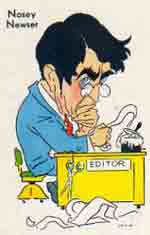 It took me a while to get my e-books up on the system at Amazon, and then at Smashwords. It wasn’t that it was so all-fired complicated to do, although it took a few uploads before the layout and everything was to my satisfaction. It was easy enough to format for Kindle: All I had to do was convert it to an HTML document, and then follow their detailed instructions. Smashwords, which converts the books to the formats for Sony, Nook, iPad, and smart phones, as well as for their own sale, took a little more finessing with Word, but it was easy once I got the hang of it.
It took me a while to get my e-books up on the system at Amazon, and then at Smashwords. It wasn’t that it was so all-fired complicated to do, although it took a few uploads before the layout and everything was to my satisfaction. It was easy enough to format for Kindle: All I had to do was convert it to an HTML document, and then follow their detailed instructions. Smashwords, which converts the books to the formats for Sony, Nook, iPad, and smart phones, as well as for their own sale, took a little more finessing with Word, but it was easy once I got the hang of it.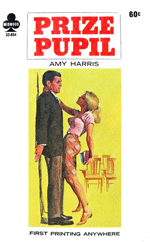 Last Friday I had the honor of once again being a judge for a citywide spelling bee, hosted at St. James Lutheran School. My competition was in the morning, consisting of fifth through eighth graders from the public schools in Chicago. We started out with 63 spellers and ended up with one winner who will head the the national bee in Washington in June. (The afternoon competition was among the private school students, who will also send a champeen (sp?) to Washington.)
Last Friday I had the honor of once again being a judge for a citywide spelling bee, hosted at St. James Lutheran School. My competition was in the morning, consisting of fifth through eighth graders from the public schools in Chicago. We started out with 63 spellers and ended up with one winner who will head the the national bee in Washington in June. (The afternoon competition was among the private school students, who will also send a champeen (sp?) to Washington.)
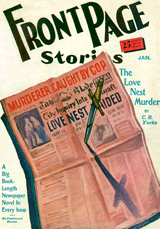 I know it’s been a slow news week, but I’ve been impressed with how many column inches have been printed about J.D. Salinger shedding his mortal coil this week. It speaks to the devotion so many people have about his writing, with a little dash of human interest story about the talented artist forced to become a hermit because of the demands of the public.
I know it’s been a slow news week, but I’ve been impressed with how many column inches have been printed about J.D. Salinger shedding his mortal coil this week. It speaks to the devotion so many people have about his writing, with a little dash of human interest story about the talented artist forced to become a hermit because of the demands of the public. 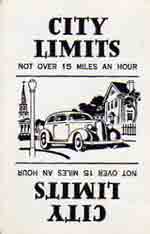 Yesterday I attended a business-group luncheon on the North Side to talk about Boy Scouting. Afterward I met an older man in the group, and we chatted as we walked to our cars. He asked me what neighborhood I lived in, and I told him Lincoln Square.
Yesterday I attended a business-group luncheon on the North Side to talk about Boy Scouting. Afterward I met an older man in the group, and we chatted as we walked to our cars. He asked me what neighborhood I lived in, and I told him Lincoln Square. Today was William Shakespeare’s birthday, and there were festivities throughout the cultural landscape. You might have had some thespians traipsing through your downtown spouting iambic pentameter while wearing baggy shirts and tight hose, all nonny and such. But here in Chicago, Da Mare (give Chuckie his due) went everyone one better: He made today in Chicago
Today was William Shakespeare’s birthday, and there were festivities throughout the cultural landscape. You might have had some thespians traipsing through your downtown spouting iambic pentameter while wearing baggy shirts and tight hose, all nonny and such. But here in Chicago, Da Mare (give Chuckie his due) went everyone one better: He made today in Chicago 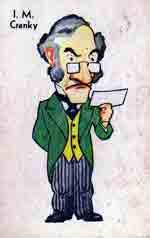 zymurgy – a branch of applied chemistry that deals with fermentation processes (as in wine-making or brewing)
zymurgy – a branch of applied chemistry that deals with fermentation processes (as in wine-making or brewing)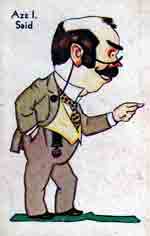 Work these into your conversations this weekend. IT PAYS TO INCREASE YOUR WORD POWER!!
Work these into your conversations this weekend. IT PAYS TO INCREASE YOUR WORD POWER!!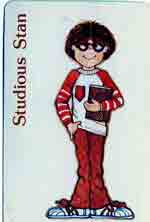 Last Friday I was back at it, serving as a judge in the citywide Scripps Spelling Bee. I served as a judge last year, and remember sitting in the audience when my son competed four years ago. Also on my panel was newshound extraordinaire Carol Marin, who is a neighbor of the school–St. James Lutheran–that hosted the bee. Oh, it was a time for five-day deodorant pads. The tension was so thick in that room we had to take extra time to tell the kids to get up and shake their arms.
Last Friday I was back at it, serving as a judge in the citywide Scripps Spelling Bee. I served as a judge last year, and remember sitting in the audience when my son competed four years ago. Also on my panel was newshound extraordinaire Carol Marin, who is a neighbor of the school–St. James Lutheran–that hosted the bee. Oh, it was a time for five-day deodorant pads. The tension was so thick in that room we had to take extra time to tell the kids to get up and shake their arms. 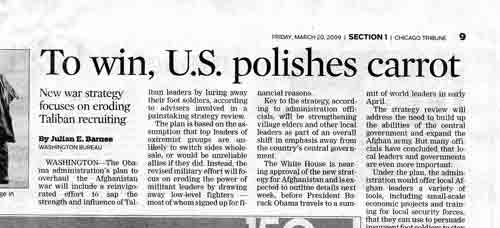
 That was quite some inaugural yesterday. Hope you had a chance to see it as it happened. The TV was on CNN almost all day around here, and I sat down to watch more than I should of parades and balls. I haven’t watched that much TV in a long time, and I was beginning to feel it by early evening. Bloated, unmotivated, a little down–this must be how couch potatoes always feel, but some of it was also due to the passing of the moment. The glitz and glamor will dissipate as our long time of rebuilding begins. Obama might be ready to roll up his sleeves, but I’m always a fan of the interim, the suspense, the what if. It’s safer than commitment.
That was quite some inaugural yesterday. Hope you had a chance to see it as it happened. The TV was on CNN almost all day around here, and I sat down to watch more than I should of parades and balls. I haven’t watched that much TV in a long time, and I was beginning to feel it by early evening. Bloated, unmotivated, a little down–this must be how couch potatoes always feel, but some of it was also due to the passing of the moment. The glitz and glamor will dissipate as our long time of rebuilding begins. Obama might be ready to roll up his sleeves, but I’m always a fan of the interim, the suspense, the what if. It’s safer than commitment.